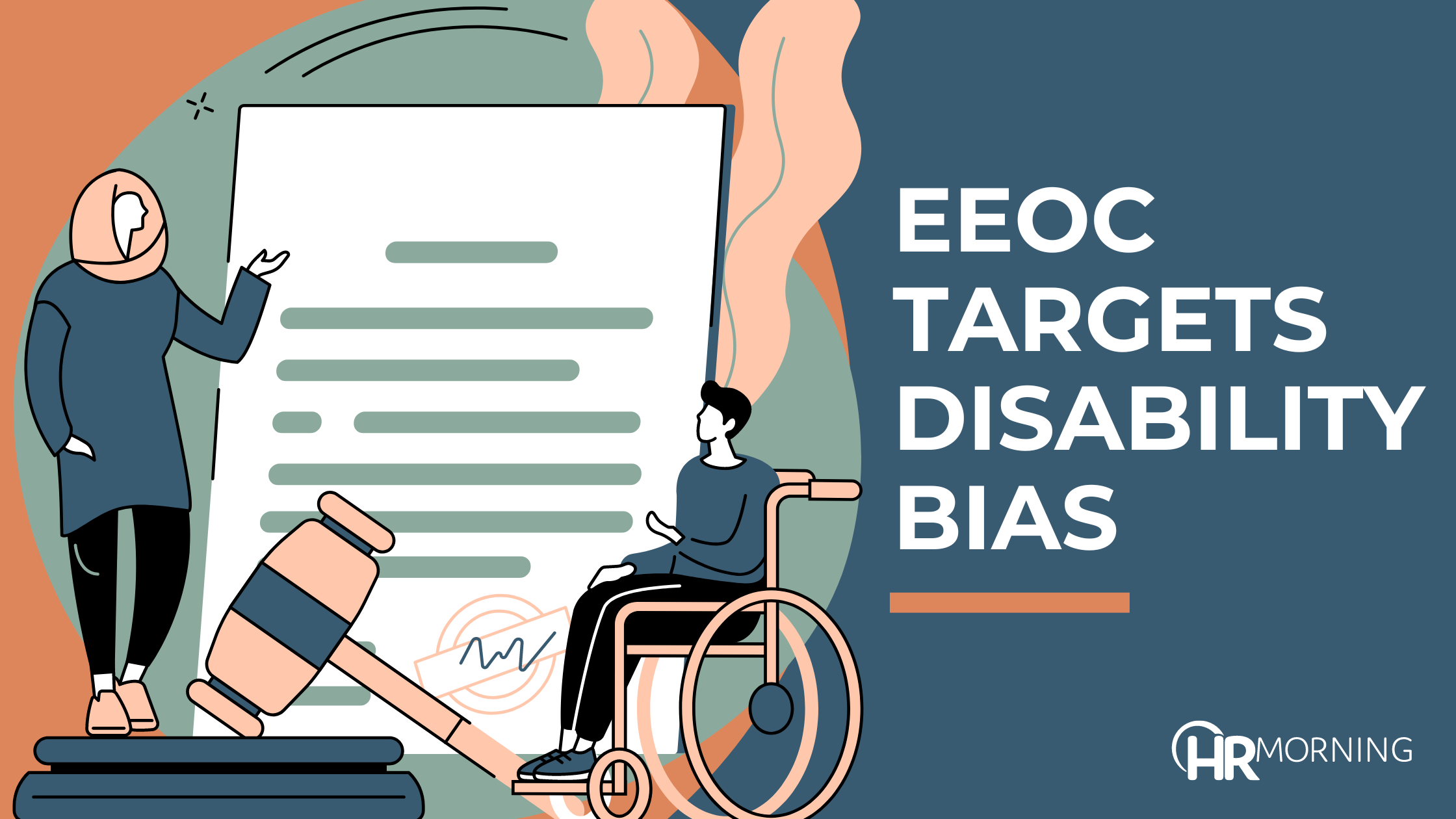Allegations of disability bias played a prominent role in two separate lawsuits that were filed and recently settled by the Equal Employment Opportunity Commission (EEOC), which is the federal agency that enforces the Americans with Disabilities Act (ADA).
The two cases, which involved employers in New York and Texas and produced a total of $400,000 in payments, hold some valuable lessons for employers.
Disability bias alleged against deaf applicant
In one case, New York-based Tech Mahindra, which is an IT services company, agreed to pay $255,000 to resolve a suit that accused it of violating the ADA by declining to hire a deaf applicant, allegedly because it believed it would be a “challenge” to provide a sign-language interpreter.
The EEOC’s lawsuit on the applicant’s behalf alleged that the applicant provided an interpreter during an interview he had for an automation engineer position with the employer. The agency said the employer ended the interview when it realized the applicant was deaf and using an interpreter.
It allegedly then followed up with an email that said the applicant had “the perfect skill set for [the] role” but that “it would be a challenge” for it to provide an interpreter on the job site.
The EEOC said that the alleged conduct was disability bias that violated the ADA, which requires covered employers to provide reasonable accommodations to qualified applicants and employees with disabilities.
To end the case, Tech Mahindra agreed to pay the rejected applicant $255,000.
Additional provisions
The consent decree that committed the settlement to writing also bars the employer from discriminating based on deafness in the future. Tech Mahindra will also create anti-discrimination policies and complaint procedures, and it will provide ADA disability bias training to all employees who are involved in hiring and supervision. Finally, the employer agreed to hire an ADA coordinator to review reasonable accommodation requests.
“All qualified applicants must be provided reasonable accommodations throughout the hiring process,” said Yaw Gyebi Jr., director of the EEOC’s New York district office.
Remember: The ADA duty to accommodate does not apply only to current employees. As this case shows, qualified applicants must also be provided with reasonable accommodation when needed.
The ADA’s anti-discrimination requirements cast a wide net, and they apply to all aspects of the employment relationship.
Second case: Disability bias and medical leave
In the second case, the EEOC accused an Amarillo-based dealership called Pete’s Car Smart of violating the ADA by telling a longtime employee who was set to return from a medical leave that she would be fired if she did not retire.
The employee had been an employee at the dealership for almost 18 years, and she underwent bypass heart surgery early in 2021.
In that case, the agency tacked an Age Discrimination in Employment Act charge to its allegation of unlawful disability bias under the ADA.
To settle the case, the employer agreed to pay the former employee $145,000. It further agreed to create new protocols for requesting reasonable accommodation and reporting alleged discrimination.
Relevant training will also be provided to all employees.
The EEOC noted that it was the company owner who allegedly told the employee that she needed to retire.
“Effective messaging to staff that promotes a non-discriminatory work environment should start at the top,” said EEOC Regional Attorney Robert Canino.
This case demonstrates what should be an obvious mistake, and an easy one to avoid: Don’t make unfounded assumptions about an employee’s ability to do their job based on their disability or advanced age.
One more just begun
The EEOC announced the New York and Texas settlements on the same day that it announced its filing of a similar separate suit in Georgia.
In that case, the agency is accusing a Columbus retirement community operator of unlawfully discriminating against a long-tenured receptionist who was allegedly encouraged to retire following a brief period of hospitalization. The employer’s general manager allegedly told the employee that it lost its confidence in her ability to work because of her hospitalization. The employer engaged in disability bias by terminating her employment and replaced her with much younger employees, the suit alleges.


